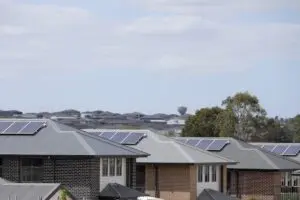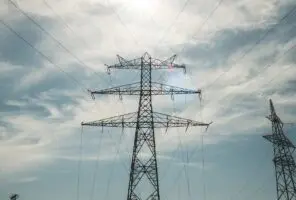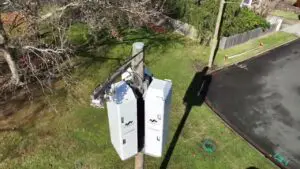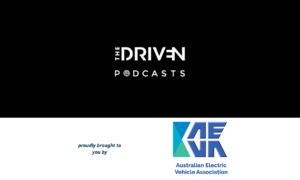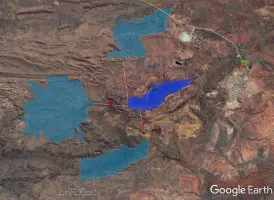If the world is to meet national climate targets and support greater energy security, it must add or replace 80 million kilometres of electricity grids by 2040 – the equivalent of all grids currently in operation around the globe.
A new first-of-its-kind report published Tuesday by the International Energy Agency (IEA) warned that global efforts to tackle climate change and ensure reliable supplies of electricity could be put at risk unless policymakers and companies move immediately to improve and expand the world’s electricity grids.
The new IEA report, Electricity Grids and Secure Energy Transitions, says electricity grids are not being updated quickly enough to keep pace with the rapid expansion of key clean energy technologies such as solar, wind, electric vehicles, and heat pumps, and the resulting increase in electricity generation and usage.
Without greater policy attention and investments, IEA warns that resulting shortfalls in the reach and quality of grid infrastructure could end up undermining efforts to limit global warming to 1.5°C.
The report provides a global stocktake of the current fleet of electricity grids based on a country-by-country analysis and finds that achieving the climate and energy goals of all nations will require adding or replacing 80 million kilometres of power lines by 2040.
Without this massive revitalisation, issues will continue to mount. The report identified a growing pipeline of renewable energy projects, worth around 1,500GW, waiting to be connected to the grid.
Additionally, major changes are needed to how grids operate and are regulated, while annual investment in grids – which have remained relatively stagnant – needs to double to more than $US600 billion a year by 2030.
“The recent clean energy progress we have seen in many countries is unprecedented and cause for optimism, but it could be put in jeopardy if governments and businesses do not come together to ensure the world’s electricity grids are ready for the new global energy economy that is rapidly emerging,” said Fatih Birol, IEA executive director.
“This report shows what’s at stake and needs to be done. We must invest in grids today or face gridlock tomorrow.”
The report finds that a slower rollout of renewables due to a failure to properly update national electricity grids could result in an extra 60 billion tonnes of CO2 emissions between 2030 and 2050 as a result of increased fossil fuel generation.
Delayed grid development will also result in increased risk of grid-related outages that already cost countries millions of dollars – a number that will only increase in the future.
For example, in 2021, Australia suffered economic losses of over $3.5 billion due to grid-related outages – which includes technical failures, outages caused by human interference, and natural-related factors such as weather, trees, natural disasters, and animals.
Several strategic actions to be taken by countries are highlighted by the report, including expanding and strengthening grid interconnections within countries, between countries, and across regions in order to make systems more resilient and better able to integrate rising levels of wind and solar.
The IEA also recommends that governments back large-scale transmission projects to ensure that grids are prepared for future additions of renewable power. The report’s authors also call on grid developers and operators to embrace digitalisation in order to enable grids of the future to be more resilient and flexible.
Conversely, strong international collaboration will be needed to help improve and expand grid infrastructure, especially in emerging and developing economies.
“Ensuring the developing world has the resources it needs to build and modernise electricity grids is an essential task for the international community,” said Dr Birol.
“By mobilising financing, providing access to technology and sharing best practices on policies, leading economies can help improve people’s lives, strengthen sustainable development and reduce the risks of climate change.”


